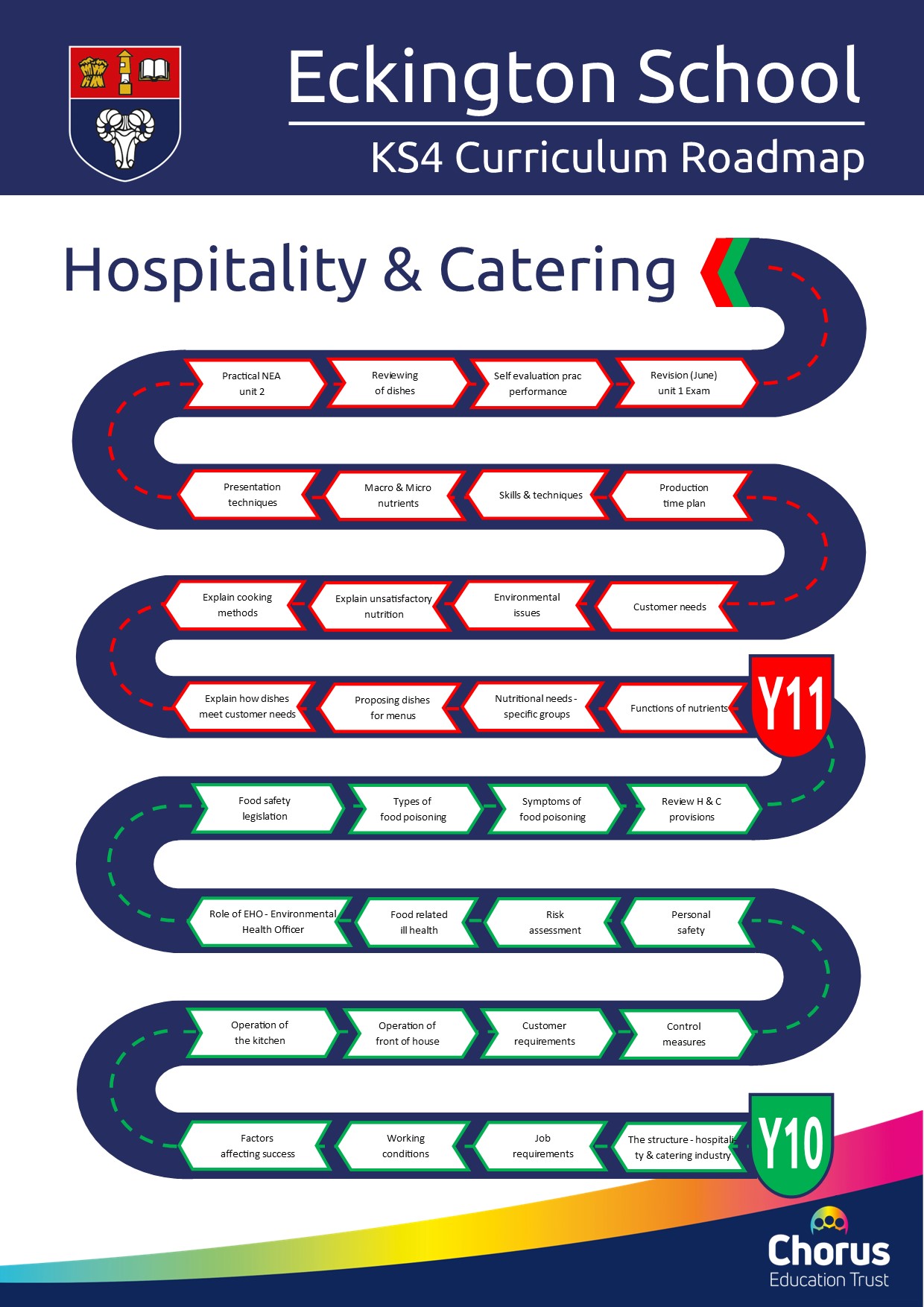Courses
We offer a broad and balanced curriculum, for:
Click the appropriate button below to find the details for each subject offered in each key stage.
Further details of our curriculum are available on the curriculum page.

Overview
Hospitality & Catering
Introduction
This course covers a large range of high-level practical skills and focuses on the preparation, cooking, serving and presentation of food. Students will study nutrition, the ‘Eatwell Guide', food origins, shopping habits, commodities, sustainability and the hospitality and catering industry.
Hospitality and catering is designed to enable students to show their creativity when making food products linked to the hospitality industry. The course offers students the opportunity to develop knowledge and extend their practical skills in a vocational context. Students learn about all aspects of the catering industry from job opportunities to health and safety. Students will be learning about the different sections of the industry, about employment rights, the environmental health officer, food safety, and how provision meets health and safety requirements.
Qualification
Level 1/2 Vocational Award Hospitality and Catering (Technical Award)
Awarding body
WJEC
Course leader
D Robinson
Assessment
- Examination: 40% (Unit 1)
- Non-examined assessment: 60% (Unit 2)
The controlled assessment is based around a brief provided by the examination board. The student will suggest dishes appropriate for the brief and research the nutritional value of the foods. They will select two dishes with accompaniments and produce a time plan and cook the foods in a 3 hour session.
Curriculum
Curriculum Roadmap
Topics
- Prepare, cook and store a range of different foods using a variety of methods.
- Principles of nutrition.
- Diet and good health.
- The structure of the hospitality and catering industry.
- How hospitality and catering businesses operate.
- Health and safety including food bacteria.
The course is broken into two units:
- Unit 1: investigating how different hospitality and catering businesses run, manage staff, deal with customers and how food safety and hygiene are vital to running a successful business. The assessment for unit 1 is an external written exam worth 40% of the final mark.
- Unit 2: looking at nutrition throughout life, menu planning, costings and marketing. Food preparation skills are taught throughout the year with students working towards a practical exam. In this assessment, students demonstrate their preparation and cooking skills alongside presentation and plated dishes. Coursework accompanies the practical assessment and is worth 60% of the final mark.
Skills and requirements
Skills learned
- Creative thinking.
- Hospitality and catering is ideal for young people with a passion for creating food of all different types.
- Essential life skills.
Careers
Future pathways
Hospitality and catering provides a strong foundation for a career in either catering or the food technology industry.
According to the British Hospitality Association, hospitality and catering is Britain's fourth largest industry and accounts for around 10% of the total workforce. Since 2010, over 25% of all new jobs have been within the hospitality and catering sector with the majority of new roles falling in the 18 - 24 age group.




